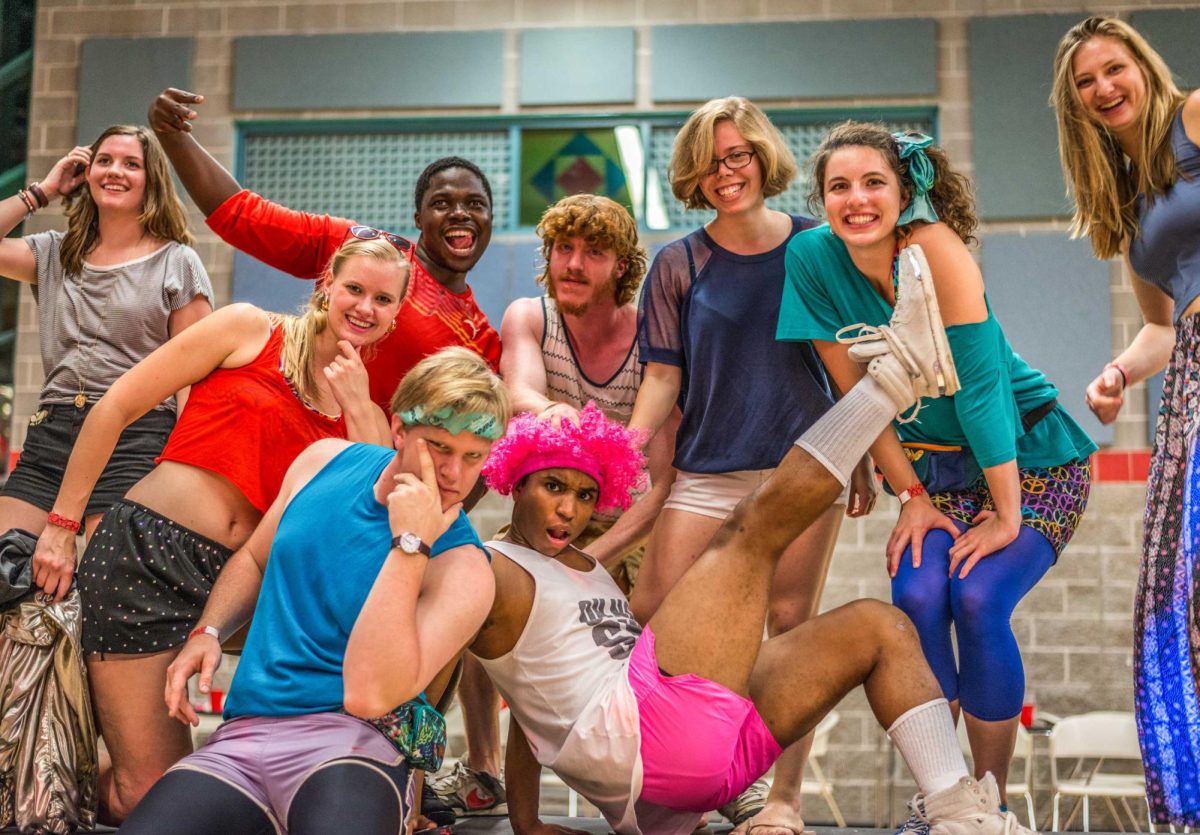Geneticist Dean Hamer came into fame in 1993 for his controvercial discovery of “the gay gene”. His convocation speech Thursday, which focused on his research in behavior genetics and human sexuality, was followed in the evening by a screening and discussion of Out of the Silence, the documentary he produced chronicling the challenges of GLBT individuals in a small Pennsylvania town.
Jumi Bello: What prompted you to study genes pertaining to human behavior?
Dean Hamer: I think it was why I’ve studied genetics all my life. It got to a certain point in time where I’d done my basic research and I was looking for something that would have more social importance and it was at that same time that the Human Genome Project really started…so you could really do something significant with behavior genetics. So I put those two things together and decided to do that.
Bello: With all this research, you made findings on all types of behavioral genetics—serotonin transporters, dopamine and how it relates to anxiety/depression and even the “gay gene.” What was your motivation for pursuing this line of scientific research?
Hamer: I think that, you know, almost everyone who is a biologist thinks that all these traits have some biological underpinning. What was novel about what I did was to say, “Ok, let’s apply the technology we have and study something like sexual orientation,”and most people would shy away from stuff like that because it’s too queer or too gay or too weird or something like that. So it wasn’t really so much of a theory as the willingness to look at something that a lot of people had not investigated at all before.
Bello: Your willingness to look at something that had not been investigated before produced some findings that were very groundbreaking for the scientific world as well as the queer theory arena. How did people react when you started publishing your findings?
Hamer: The reactions were very mixed. They ranged from absolute total ecstasy: “This is wonderful, this is great,” to: “You’re some kind of Hitler madman who’s going to be destroying gay people forever.” It was very, very varied, I would say. The only people who would be consistently against it were the real right-wingers who don’t want anyone to think that being gay is anything other than a bad choice that people make. But other people who were on both sides saw things both ways.
Bello: What about your more current hypotheses on other behavioral genes? You wrote something in 2004 called “The God Gene” and you were talking about how there is a God gene for the religious experience.
Hamer: That’s actually not a gene. It’s not really for religion or for God, it’s more for the feelings of spirituality that people have. And we have this theory that spirituality again is a personality trait that is variable. Some people tend to be more spiritual and others less so.
Bello: What led to this publication?
Hamer: I’m just fascinated with how important religion has become in American society. It made me wonder why it was so important and as a biologist, I wondered whether there were biological roots. There’s been a fair amount of research suggesting that there’s some sort of biological root to spirituality and we decided to test that.
In fact, what the research looks like is that this tendency towards spirituality does have some sort of innate component, whereas religion itself is purely culture and has no biology. I also realized that that is very at the outer edge of what biology can really study in a truly scientific way. I think the research is valid but is sort of pushing the limits of how much you can study through biology.
Bello: So with all this research and publications you’ve made over the years, you managed to produce a film called Out Of The Silence, which is the story of queer people in rural communities. How did you manage to find time to do this?
Hamer: That’s a good question. Well, as you see, it’s about something that’s important to me and my partner and I felt like somebody had to document it. And since nobody was going to do it for us, we just decided to do it ourselves and we just started filming.
We’d go to Oil City, this small town, on weekends or for a couple of days at a time and film while we are there and stretch that out for a couple of years and now it’s a movie. Moviemaking is a skill in and of itself as I’ve discovered. It requires dedication and a lot of collaboration with other people.
We’ve also been very fortunate to be able to work with some very talented people. We got support from the Sundance Institute—we got two big grants from the Sundance Institute. We applied for the grants and it’s much harder to get a Sundance grant than an NIH [National Institutes of Health] grant. It’s like a thousand applications for 10 spots, but we had an interesting story and that was extremely helpful.
Bello: Has the movie been well received since it has been produced?
Hamer: It’s just beginning now and we’re beginning our outreach tour. It’s been extremely well received. We just heard from the American Bar Association who wants to use it to train their lawyers all over the country—ACLU [The American Civil Liberties Union] is going to use it, the Holocaust Education Council is going to use it and you’ll see it’s because it really sort of shows both sides of the debate that’s going on.
It’s hopeful and optimistic. It has got a lot of qualities that most gay documentaries don’t have because it tries to really show both sides and I think that makes a big difference. I think it’s a tool that can go beyond preaching to the choir and bring two people together and discuss these issues—I hope.


















































